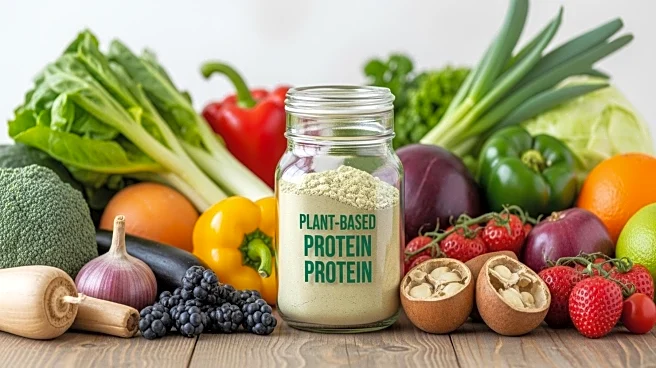What is the story about?
What's Happening?
The European Parliament has voted to restrict the use of terms traditionally associated with meat, such as 'burger' and 'steak', to products that contain actual meat. This decision is part of a broader legislative effort to ensure transparency and clarity for consumers, as well as to protect the interests of farmers. The amendment, proposed by French MEP Céline Imart, aims to reserve these terms exclusively for meat products, arguing that their use for plant-based alternatives could mislead consumers. The proposal aligns with existing EU regulations that prohibit the use of dairy-related terms for non-dairy products. The vote passed with 355 in favor and 247 against, but it still requires approval from the EU's 27 member states to become law.
Why It's Important?
This legislative move is significant as it highlights the ongoing cultural and economic debates surrounding plant-based foods in Europe. The decision could impact the plant-based food industry by forcing companies to rebrand their products, potentially affecting consumer perception and sales. It also underscores the influence of the agricultural lobby in shaping food policy. Critics, including Green MEPs, argue that the measure is unnecessary and serves as a distraction from more pressing issues. They contend that consumers are not confused by current labeling practices. The outcome of this decision could set a precedent for similar regulations in other regions, affecting international trade and marketing strategies for plant-based food producers.
What's Next?
The proposal now awaits consideration by the EU's council and commission. If approved, it will become law across the 27-nation bloc. The decision could face opposition from member states with strong plant-based food markets, such as Germany, where major retailers have expressed concerns about the impact on consumer choice. Additionally, the Northern Ireland Assembly may use the 'Stormont brake' to delay the law's application if it significantly impacts daily life in Northern Ireland. The ongoing debate may also influence future EU elections and policy directions, particularly regarding food labeling and consumer rights.


















